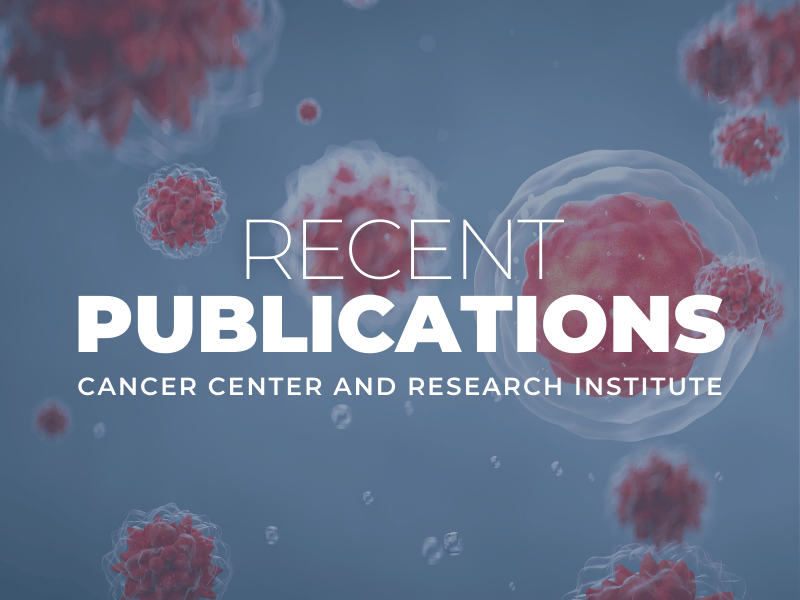Recent publications

Discovery could lead to new treatments for resistant prostate cancer

Despite advances in treatment, prostate cancer is the most common non-skin cancer in men. It is heavily influenced by androgenic steroids with the androgen receptor playing a crucial role in its development. Hormonal therapies, which target the androgen receptor, are commonly used, but many patients eventually develop castration-resistant prostate cancer which is a form of the disease that no longer responds to treatments. The resistance typically occurs within a year due to mutations, gene amplification, tumor-produced androgens or alternative signaling pathways.

In a groundbreaking new study, researchers have uncovered a critical pathway that contributes to the treatment resistance seen in CRPC. Dr. Jawed A. Siddiqui, assistant professor in the Department of Cell and Molecular Biology and member of the Cancer Center and Research Institute, along with Dr. Gunjan Sharma and Dr. Abdullah Khan, have identified the Gsk3β/Gli3/AR-V7 axis, a signaling molecular pathway, as a key driver of cancer growth in CRPC.

The study revealed that the activation of Gsk3β is responsible for generating t-Gli3, which facilitates the oncogenic potential of androgen receptor variant 7 (AR-V7). Gli3 is a protein that plays an important role in a signaling system in the body called the Hedgehog pathway, which controls how cells grow, develop, and change into different types. In cancer, Gli3 helps regulate the genes that control these processes. In prostate cancer, changes in the Gli3 can contribute to cancer growing and becoming resistant to treatments. Essentially, Gli3 acts like a switch that controls important processes related to tumor growth.
Most importantly, directly targeting Gli3 was able to stop the growth of prostate cancer cells that no longer respond to hormonal therapy, which suggests that Gli3 could be a new target for therapeutic development. The findings give hope for future treatment that could help prevent prostate cancer from becoming resistant to treatment, improving survival rates and providing more personalized care for patients. With this deeper understanding of the Gli-family proteins and their role in prostate cancer biology, Siddiqui and his team are interested in translating these promising preclinical outcomes of inhibiting t-Gli3 to clinics, so that this novel mechanism could help in improving survival rates and provide more personalized care for patients.
Citation:
Kaushal JB, Raut P, Halder S, Alsafwani ZW, Parte S, Sharma G, Abdullah KM, Seshacharyulu P, Lele SM, Batra SK, Siddiqui JA. Oncogenic potential of truncated-Gli3 via the Gsk3β/Gli3/AR-V7 axis in castration-resistant prostate cancer. Oncogene. 2025 Jan 16. doi: 10.1038/s41388-024-03266-z. Epub ahead of print. PMID: 39821099.


